Cameraman: The Life and Work of Jack Cardiff
Behind every great and acclaimed director there is a team of filmmakers ranging from the gaffer to costume designer and the director of photography. Would Citizen Kane have been groundbreaking movie it was without the incredible work by Gregg Toland? Or how about Vertigo without Robert Burks or Breathless without Raoul Coutard? Orson Welles, Alfred Hitchcock and Jean-Luc Godard (amongst others) all of their success, at least some of it, to the geniuses who worked out the lighting, focus and little camera tricks that make the great movies what they are. In the case of the brilliant set of movies made by Emmerich Pressburger and Michael Powell, a great deal of their success and why they are regarded so highly is down to one man: Jack Cardiff.
Cardiff, who died last year, is generally considered as the greatest cinematographer of the colour era and his work on films like Black Narcissus, The Red Shoes and A Matter of Life and Death is still breathtaking to this day. This documentary is bookended by footage from the 2001 Academy Awards at which he became the first cinematographer to be awarded an honorary Oscar. The award, which was presented by Dustin Hoffman, was prefaced by an introduction by the great actor in which he points out that, for everyone in that room who is aged 70 or under, Jack Cardiff was making films before they were born.
This documentary, by Craig McCall, features contributions from those who worked with him, were influenced by him and by the man himself to build a thorough portrait of what makes Jack Cardiff's work so special and why it is still so highly regarded decades after he was at the peak of his powers. Amongst those who offer their opinions are Martin Scorsese, Thelma Schoonmaker, Kirk Douglas and Lauren Bacall. Overall they paint a picture of a man who was utterly dedicated to his work, learned from the very best, beginning as a clapper boy at the beginning of the sound era and working with men like Alfred Hitchcock where he learnt his trade and then came into his own when Technicolor began and Cardiff, as the saying goes, 'painted with colour'. They generally all speak fondly and with great reverence to Cardiff, but the star of the show was quite clearly Scorsese whose passion for films like The Red Shoes is famous and he talks with great passion and knowledge about Cardiff's work. The various scenes from Cannes are all interesting as it is clear that Cardiff is very highly regarded in Europe.
Craig McCall has done a sterling job in gathering a huge array of photographs, archive footage and interview material that is beautifully put together to form a revealing, informative and thoroughly engrossing portrait of a man and his work. It helps that Cardiff was so lucid right up until his final days so was able to speak at length and in detail about his career even when he was in his 90s. Of course, the documentary wouldn't really have worked so well in the subject was cantankerous, boring or generally unappealing but Jack Cardiff was such a lovely bloke that I defy anyone to watch this and not wish that they had spent at least an hour in his company talking film.
This isn't the sort of documentary that will appeal to the average viewer, and nor is it intended to, as it is aimed squarely at those who are at least partly familiar with Cardiff's work as they are the ones who will get the most out of this film. I thought I was fairly au fait with the films on which he had worked but didn't realise just how many I hadn't seen and now have a fairly sizeable list of films I want to see with the knowledge of how certain shots were created by the master cinematographer.
The Disc
Extra Features
The first on the list is an interview with Craig McCall by film scholar Ian Christie which is a nice discussion between the two men and Christie asks all the right questions prompting McCall to talk about where the idea came from, how he first met Jack Cardiff and how he managed to secure interview time with all of the big names.
There is a brief (four minutes) piece in which Jack Cardiff goes through all of his scrapbook showing all of the beautiful women he was fortunate enough to photograph during his career and talks about them and the lighting and other aspects of photographing.
Jack's Behind-The-Scenes Movies is a nice 10 minute piece with Cardiff looking at the footage he took on very shoots (some of which made its way into the finished documentary), starting with The African Queen, and talking about the locations and people shown. It is a lovely piece as he talks with great passion and fond recollections about the various shoots and people he met along the way. These are a great watch -- Jack Cardiff refers to them being 'a bit like holiday snaps' under the most people's holiday photographs don't include Humphrey Bogart, Elizabeth Taylor and Katharine Hepburn!
In Cinematographer and Director Relationship, there are a series of interviews with filmmakers like Alan Parker, Freddie Francis, Charlton Heston, Richard Fleischer, Martin Scorsese and (of course) Jack Cardiff who talk about the importance of the cinematographer and why a close relationship between the director and his DP is so integral to the smooth running of a film set.
Working with Three Strip Technicolor is, as the title suggests, an explanation of how the technology worked and the precautions they need to take by those who used it when it was in its infancy and is a really interesting five minute watch.
You also get the theatrical trailer and two photo galleries, one of 'Jack's Actress Portraits' and another of production stills.
The Picture
A beautifully sharp fall frame picture which does a great job of presenting all of the recent interview footage clearly and with great clarity as well as the older photographs and archival footage with captions to tell you what film it's from, the date and the director as well as writing out who is who in certain photographs.
Documentaries are never the most demanding of films and you never really notice when something is done well, only when it is done badly so it is great to sit back and watch a film where nothing strikes you as looking 'off'. I could reel off a list of what isn't there (moiré, aliasing, edge enhancement), but that would be utterly pointless -- I may as well point out that there aren't any chimpanzee or scenes of pensioners eating fish fingers!
The Sound
You have the choice of Dolby Digital 5.1 surround or PCM 2.0 stereo and, for a film like this, there really isn't any need for the surround track. I started off listening to the 5.1 option but switched to the PCM stereo and found that to be much crisper, doing a better job with the dialogue and not having to worry about the surround speakers which aren't really used anyway.
Final Thoughts
This is almost a 'must see' documentary for anyone who has more than just a passing interest in how films are made. If you are a fan of Powell and Pressburger's films for The Archers and the Rank Corporation and have seen the short documentaries on those DVDs then this will expand upon those and really help you to understand what a genius Jack Cardiff was and what a sad loss he was to film community.
Some documentaries are almost 'single use only' as they do not stand up to repeated viewings but I could see myself watching this again, making a proper list of all the films I would like to watch in order to fully appreciate Jack Cardiff's contribution to film history and then again, having watched all of those movies. Craig McCall has done a terrific job in showing what a genius Jack Cardiff was and why he is so highly regarded by filmmakers both young and old.
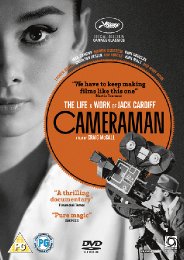

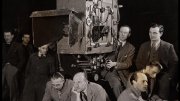
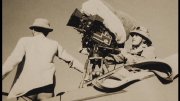

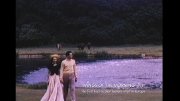
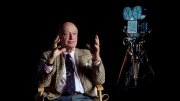
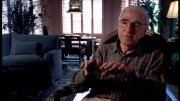
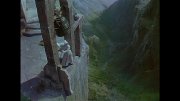

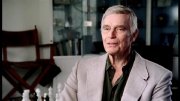
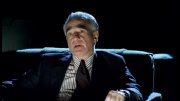
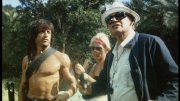
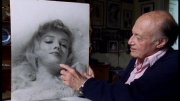



















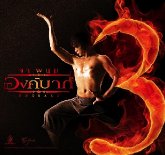

















Your Opinions and Comments
Be the first to post a comment!